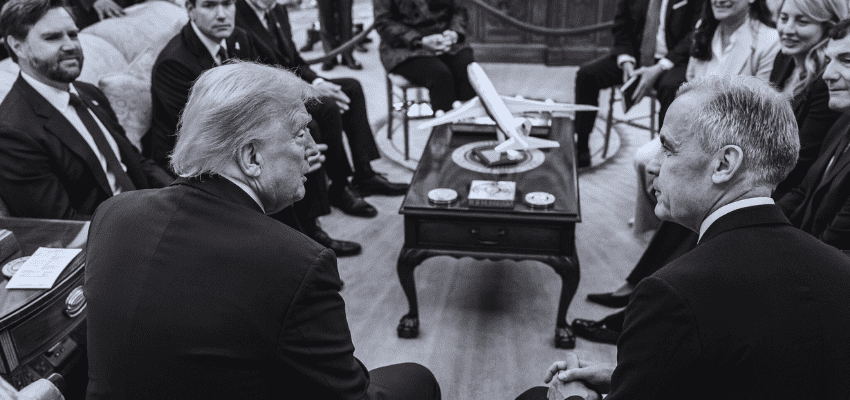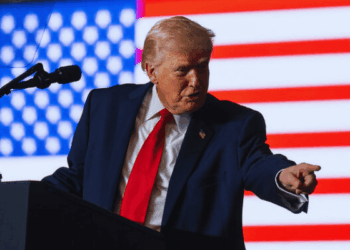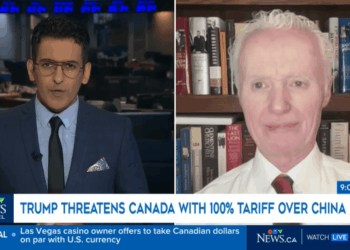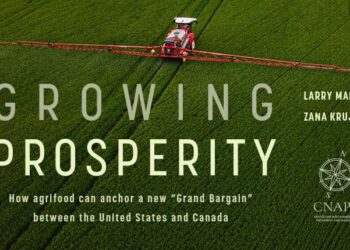This article originally appeared in Real Clear World.
By Alan Kessel, October 29, 2025
Canadian Prime Minister Mark Carney recently responded “yes” when asked by BBC journalist Mishal Husain whether he would arrest Israeli Prime Minister Benjamin Netanyahu if he were in Canada.
Carney, of course, has said a variety of questionable things regarding Israel and Palestine over the last several months, including “I’m aware,” after a heckler shouted “Mr. Carney, there’s a genocide in Palestine!,” as well as calling for a “Zionist Palestinian State,” but this most recent remark takes the cake.
For starters, there are, of course, legal hoops to jump through. Canada has made it clear publicly and directly to both the United Nations and the International Criminal Court (ICC) that it does not recognize a Palestinian state as a “party” to the ICC Statute. As a result, there is no legal or policy obligation for Canada to execute any warrant issued by the ICC Prosecutor, especially following what many view as a deeply flawed process for determining whether the Court has jurisdiction over Israel – a state that is not a party to the Statute.
Indeed, to implement such an arrest warrant, Canada would have to reverse engineer its own legal framework. Ottawa would need to amend portions of the Crimes Against Humanity and War Crimes Act, adjust the ICC Implementation Act, and reinterpret its long-standing declarations to the UN and the ICC to align with the recognition of “Palestine” as a state party. That would mean abandoning decades of legal consistency and undermining Canada’s credibility as a country that respects both the rule of law and its own word. The Prime Minister’s flippant “yes” therefore risks dragging Canada into a morass of legal contradiction for the sake of a sound bite.
But beyond law, there is policy, and here, Carney has managed to shoot himself in the foot while his foot is in his mouth. By publicly musing about arresting Israel’s democratically elected leader, he has alienated both President Trump and Prime Minister Netanyahu, the two indispensable figures in any credible Middle East peace framework. At precisely the moment when Washington and Jerusalem have reopened a fragile path to negotiations, Carney’s words signal that Canada is neither serious nor trustworthy enough to be at the table.
How, then, can Canada hope to play any substantive role in the newly christened peace process if its own Prime Minister has placed himself squarely on the outs with both Washington and Jerusalem?
There was a time when Canada was a state with heft. When our word carried weight, and our presence in global negotiations mattered. From Lester B. Pearson’s Suez diplomacy to our role in Northern Ireland’s weapons decommissioning, we were seen as fair, principled, and effective. In Northern Ireland, Canadian participation was welcomed because our commitment was measured, practical, and grounded in credibility. Today, that reputation has eroded under leaders who mistake moral posturing for foreign policy.
Canadian values are not ambiguous. They rest on protecting the innocent, standing up for democratic allies, and calling out those who glorify terror and death. Neither Justin Trudeau nor Mark Carney found it necessary to visit Israel during its existential fight against Hamas, a genocidal death cult that murders Jews, uses Palestinians as shields, and celebrates slaughter. That absence was more than a missed diplomatic gesture. It was a slap in the face to the families of the eight Canadians slaughtered by Hamas on October 7, Canadians whose memory deserves more than silence and distance from their leaders.
How is it possible that our foreign policy has so completely lost its path? That we equivocate between a liberal democracy and a terrorist organization? Islamist values are not Canadian values. The majority of Canadians know that, and they expect their government to know it too. Our allies know it as well, and they look to us—once a beacon of moral steadiness—to act with principle, not political calculation.
In one careless word, “yes,” Mark Carney revealed not just a legal misunderstanding, but a deeper moral confusion about who our friends are, what our values mean, and where Canada stands in a divided world. If Carney wants to matter on the world stage, he might start by remembering that leadership is not about gestures or applause lines—it’s about clarity, courage, and consistency, and about remembering what Canada once stood for, and who we still claim to be.
Alan H. Kessel is a former Assistant Deputy Minister, Legal Affairs and Legal Adviser at Global Affairs Canada and a Senior Fellow at the Macdonald Laurier Institute.








